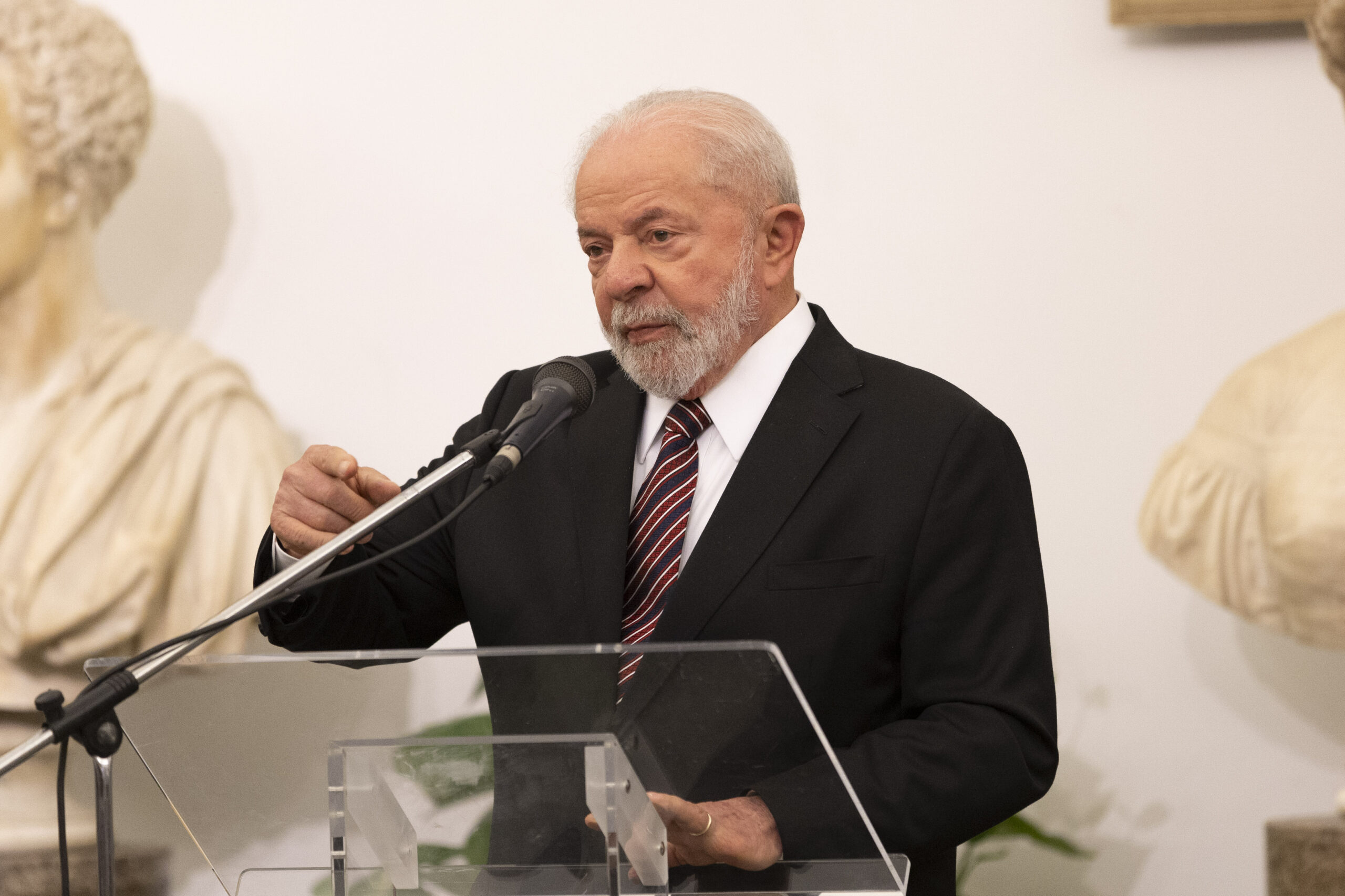Brazil and Argentina are holding back the EU in trade with Mercosur

The summit between the European Union and CELAC these days is the first in eight years. Brussels would like to discuss the trade agreement with Mercosur, but Argentina and Brazil are resisting. A pact on lithium is also planned. All the details
The summit between the European Union and CELAC, the Community of Latin American and Caribbean States, will take place in Brussels on 17 and 18 July for the first time in eight years.
According to the European Commissioner for Trade, Valdis Dombrovskis, the meeting – which will be attended by over fifty heads of state and government – could stimulate trade negotiations between the European Union and Mercosur, the South American common market formed by Argentina, Brazil , Paraguay and Uruguay, all also members of CELAC. A first and provisional agreement between the Union and Mercosur was reached in 2019, but was suspended due to European fears about the deforestation of the Amazon.
ARGENTINA TURNS OFF EUROPEAN ENTHUSIASM
Despite Dombrovskis' optimism, a European official told Reuters that the Brussels summit probably won't produce major breakthroughs, but rather some bilateral or small-group pact. The same concept was expressed by the undersecretary for Latin American and Caribbean affairs of Argentina, Gustavo Martinez Pandiani, who declared that “the CELAC-EU summit is not the right place to negotiate trade. It is a political forum. We are not discussing customs and trade figures”.
Martinez then added that Mercosur does not want just any agreement with the European Union, but a "just and balanced agreement in which each of the parties wins something".
THE CONTRAST ON THE AMAZON WITH BRAZIL
The issue of deforestation in the Amazon, and more generally of environmental sustainability, is particularly close to the heart of the European Commission. The new president of Brazil, Lula da Silva, has promised to review the country's climate policies after his predecessor, Jair Bolsonaro, had encouraged the deforestation of the Amazon and the economic exploitation of land cleared of the forest. In short, Brussels hopes to find in Lula an interlocutor more sensitive to its own interests, but it may not turn out to be one: the Brazilian president has in fact reiterated that Mercosur wants a "win-win" agreement, i.e. positive for everyone, and has criticized the possible introduction of penalties linked to compliance with climate commitments.
Brazil, in particular, sees in the Mercosur-EU trade agreement a tool for increasing its meat exports to Europe: the country is the largest meat exporter in the world, and Europe is its second destination market after China and before the United States. As recalled by the German newspaperDW , most of the Brazilian farms are concentrated in the central state of Mato Grosso and contribute significantly to the deforestation of the Amazon, together with the cultivation of coffee and sugar cane.
ELECTRIC BUSES IN EXCHANGE FOR LITHIUM?
In parallel with the trade negotiations with Mercosur, the European Union is working on the definition of a plan for the supply of electric buses to Latin American countries in exchange for lithium, perhaps the most important metal critical to the ecological transition (it is used in batteries for electric vehicles and for energy storage), whose supplies are now dominated by China.
As reported by Bloomberg , the European Commission wants to create a public-private consortium (ie formed by governments and car manufacturers) to supply electric buses to Latin American nations; in return, European companies will get privileged access to lithium reserves. More than half of the world's deposits of this metal are concentrated in three South American countries: Chile, Argentina and Bolivia. Last month the president of the Commission, Ursula von der Leyen, went on a visit to Argentina and Chile : a memorandum on lithium was signed with the former, but not with the latter (or not yet).
Intentionally, the "electric buses in exchange for lithium" pact will serve European countries to diversify their supplies of raw materials and reduce dependence on China, and will serve Latin American countries to reduce emissions from public transport. The agreement is part of the Global Gateway, the European strategy for building infrastructure around the world which aims to represent an alternative to the Chinese Belt and Road Initiative (or New Silk Road): for the Latin American-Caribbean region, the Union it expects to invest around 10 billion euros in total.
According to Commission estimates, Latin American demand for electric buses will reach 10,000 units in the coming years, a number large enough to capture the interest of European vehicle manufacturers. To help the Latin American countries, which want to prevent the real profits from mining ending up in foreign hands, the European Union could also set up manufacturing operations – and not just the withdrawal of resources, therefore – on their territories.
This is a machine translation from Italian language of a post published on Start Magazine at the URL https://www.startmag.it/mondo/unione-europea-celac-mercosur-litio/ on Mon, 17 Jul 2023 07:41:47 +0000.
